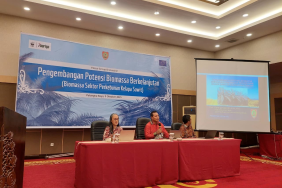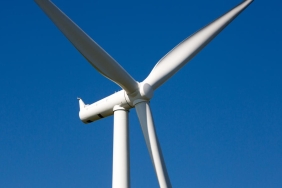STRENGTHENING THE ROLE OF CIVIL SOCIETY ORGANIZATIONS IN ACCELERATING AN EQUITABLE ENERGY TRANSITION IN THE REGIONS
Energy transition is the process of shifting from the use of fossil energy to renewable energy that is more environmentally friendly. This is an important step towards reducing greenhouse gas emissions as a major component in addressing climate change and achieving energy sustainability.
However, understanding of the energy transition and its urgency is still uneven in Indonesia. At the same time, the Indonesian government has set various targets related to the energy transition, including:
- Greenhouse Gas Emissions Reduction listed in the Enhanced Nationally Determined Contribution (NDC), a commitment to reduce greenhouse gas emissions by 31.89% by own efforts and up to 43.20% with international assistance by 2030.
- Increasing Renewable Energy Mix: target to achieve 23% of the energy mix from renewable energy sources by 2025.
- The government is also committed to reducing carbon emissions and achieving net zero emissions by 2060 or sooner.
In achieving these targets, the involvement of local governments and local communities is crucial. Optimizing local potential and wisdom in the energy transition process can accelerate the achievement of targets and ensure the availability of energy that is sustainable and in accordance with regional needs.
However, the process of achieving the targets has not been accompanied by policies that can help accelerate the achievement of these targets. For example, local governments have limited authority over energy sector utilization. In addition, successful implementation requires a balance between local potential and an equitable transition.
The role of civil society organizations (CSOs) in the formulation of policies related to encouraging the acceleration of energy transition in the regions is not yet fully optimal. There is a need to increase the capacity and knowledge of CSOs on energy issues. By doing so, CSOs can bridge the communication between the community and the government.
Therefore, WWF-Indonesia, supported by the European Union, seeks to increase the capacity of CSOs on the issue of equitable energy transition. WWF-Indonesia initiated an inter-CSO meeting forum in Central Kalimantan and Jambi which was attended by 14 and 20 CSOs respectively to discuss energy transition in the regions. This meeting also involved the Regional Development Planning Agency and the Energy and Mineral Resources Office in each region, which presented the existing policy conditions in the regions as well as the technical aspects of its implementation. From the meeting, the need for CSOs to be meaningfully involved in the energy transition process in the region was identified. Some of the conclusions from the meeting are:
- The importance of mainstreaming energy transition issues at the sub-national level.
- The need for easily accessible data on renewable energy.
- Increased public awareness of the energy industry and energy transition.
- Capacity building of CSOs in policy advocacy, community education, and local potential development.
- Strengthening inter-CSO networks for knowledge and information sharing.
- Energy transition policies should not only be oriented towards increasing renewable energy but also take into account community rights and environmental sustainability.
Departing from the above capital, WWF-Indonesia is committed to continue supporting the acceleration of the transition process by strengthening civil society organizations in the regions in order to realize an equitable energy transition.





